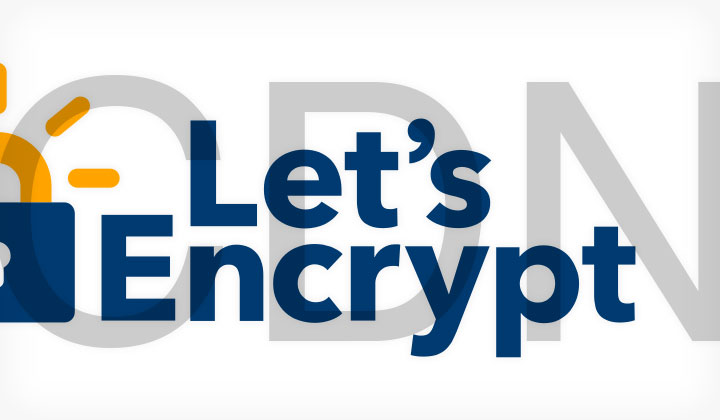In this post I am listing CDN “Content Delivery Network” providers that offer free SSL/TLS certification in July of 2025. Either by supporting the free certificate authority “Let’s Encrypt” or an option for a shared certificate.
Please note that you will likely need a separate SSL certificate for your main domain — these are being offered by many shared hosting companies and VPSes.
Note: The amount of server locations or “Points of Presence/PoPs” is not everything, I have provided very basic stats for reference only.
BunnyCDN
Low-cost, pay-as-you-go CDN suitable for all sized websites. Founded from Slovenia in 2015; it’s the most scalable delivery network available and extremely easy to use.
- Points of Presence: 16 (in 11 countries)
- Supported: Let’s Encrypt, Shared SSL, Custom SSL
- Price: $0.010/GB
- Minimum payment: $10/year
- Credits expire: Never
- Other: No monthly fees, pay as you go
- Trial: 14 days (up to 1TB) free
Enable SSL for your CNAME with one click through the control panel.
CDNsun
CDNsun is designed for volume, with affordable pay as you go pricing suitable for high amounts of traffic. Wide coverage across all five continents — efficient 24h support. This privately owned company from the Czech Republic was founded in 2012 and has about 20 employees.
- Points of Presence: 70 (37 countries)
- Supported: Let’s Encrypt, Shared SSL, Custom SSL
- Price: $0.045/GB (under 2TB), $0.043/GB (under 5TB) …
- Minimum payment: $49/year
- Credits expire: after 1 year
- Other: No monthly fees, pay as you go
- Trial: 15 days free
Each static CDN has a “certs.” option in the backend — where you can easily assign the desired SSL/TSL certification to your subdomain, letsencrypt certificates are renewed automatically.
CDN77
The UK based, London headquartered Content Delivery Network “CDN77.com” is a mid-sized company founded in 2011. They use HTTP/2 for each CDN resource.
- Points of Presence: 32 (27 countries)
- Supported: Let’s Encrypt, Shared SSL, Custom SSL
- Price: $0.185/GB (Under 30TB), $0.160/GB (Under 100TB) …
- Minimum payment: $149/year
- Credits expire: after 2 years
- Other: No monthly fees, pay as you go
- Trial: 14 days free
All new CNAMEs are redirected to HTTPS by default with a ready installed Let’s Encrypt certificate, which is automatically maintained and renewed by CDN77.
KeyCDN
Switzerland based company KeyCDN, profiled as a high-speed, simple and scalable CDN was founded in 2012. It’s integration with Let’s Encrypt has made SSL management super easy with automatic certificate renewals.
- Points of Presence: 24 (18 countries)
- Supported: Let’s Encrypt, Shared SSL, Custom SSL
- Price: $0.04/GB (Under 10TB), $0.036/GB (Under 40TB) …
- Minimum payment: $49/year
- Credits expire: after 1 year
- Other: No monthly cost, pay as you go
- Trial: Free $10 trial credit under “this link” (valid 30days)
Create your own CNAME “e.g. cdn.yourdomain.com” and have it run with fast HTTP/2 over letsencrypt TSL/SSL with a simple one-click backend process.
BelugaCDN
Coming later!
- Points of Presence: 28 (13 countries)
- Supported: Not yet
- Price: $0.01/GB (or less)
- Minimum payment: $5/month
- Other: Exceeding plan bandwidth billed at end of month
- Trial: Not available
BelugaCDN support: We are actively working on a 1-click integration and management tool, but we do not have a firm ETA yet.
CDNs Without Let’s Encrypt Support:
StackPath (MaxCDN)
MaxCDN and StackPath joined forces in 2016 to create a security focused, machine learning Content Delivery Network. No support for Let’s Encrypt is planned but options for free shared SSL or custom SSL are provided.
CacheFLy
By using a CacheFly subdomain (e.g. yourname.cachefly.net) you may use a free shared SSL/TSL certificate. For own subdomains SSLs are $500 to start with a yearly recurring fee of $100, wildcard certificates cost more.
This list is updated as the situation develops.
Final Words
While many hosting companies are stepping up to support Let’s Encrypt (also known as LetsEncrypt) — CDNs have been somewhat slower to adapt. One reason is smaller demand with the abundance of high-end users, and simply there are less CDN providers than hosting companies. Nevertheless, the more common CDN use becomes, the higher the demand for free CDN encryption.
These companies lead the times. Good luck.
Questions? Please leave your comments below!
Do note: Not all but some links may be affiliated with third party entities which pay out commission for sales coming from the WebHostWhat blog. This will not affect your experience or the contents within the articles.
Huge thank you for reading and all the support!
